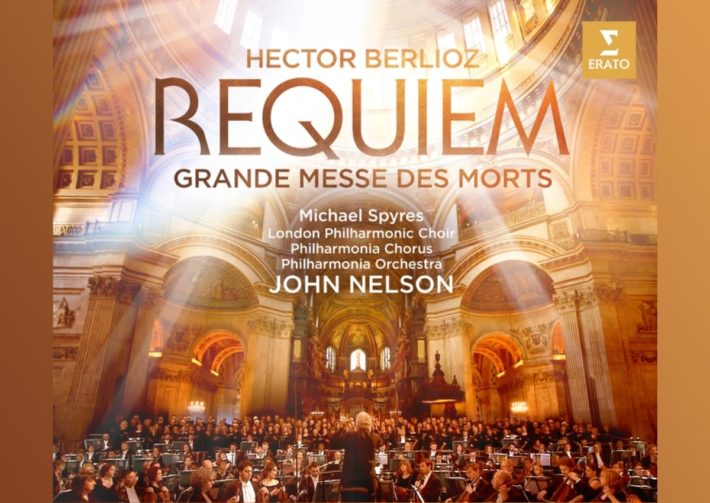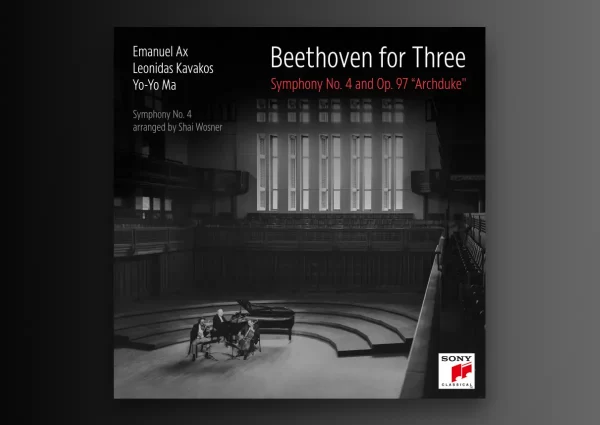Berlioz’s conceived his Requiem for extraordinarily large forces: the score asks for over 100 stringed instruments, 20 woodwinds, a percussion section with 16 timpani and 4 tam-tams, 20 brass players within the orchestra and an additional 38 brass to form 4 brass choirs placed at the four corners of the stage. The minimum number for the choir is 200-some singers, though Berlioz asks that if space permits it, the number of singers be doubled or tripled. The work’s first performance in December 1837 involved over 400 people and this new recording involves 400 musicians. In short, this music is an audiophile’s dream, and most likely an audio engineer’s nightmare, especially when making a live recording in the cavernous acoustic of St. Paul’s Cathedral, London.
It therefore seems proper to first congratulate recording producer Daniel Zalay and recording mixer Marvin Wareitting for the sonic excellence of this recording. While the reverberation is impressively caught, it never muddies the performance. Credit also belongs to Nelson’s unerring interpretation in which the room itself becomes part of the music, just as Berlioz surely intended. And when you purchase the physical CD, you also get a bonus DVD of the complete performance.
The Philharmonia Chorus and London Philharmonic Choir, trained by Gavin Carr and Neville Creed respectively, sing with outstanding diction, clear articulation and unanimity of tone. Their work is well balanced with the orchestra, even at the loudest climaxes. Recorded before a live (yet thankfully silent) audience, this recording faithfully captures everything, from the overwhelming climaxes of the “Dies Irae” to the mysterious duet between flutes and bass trombone in the “Hostias”.
Most importantly, the recording captures an exceptionally moving interpretation, masterfully conducted by Berlioz specialist John Nelson. In his brief introductory note, Nelson writes that Berlioz, despite being agnostic, attended mass every day because “he was overwhelmed by the beauty and solemnity of the Roman Catholic service.” Indeed, it is these two qualities that stand out in the performance. While most recordings ensure that the climatic moments are spectacular, far fewer seem to capture the moments of intense beauty and introspection that make up much of the score.
The opening “Requiem” immediately impresses, the men’s contrite request for forgiveness gently answered by the sopranos, leading into a gradual accumulation of tension that adds greater desperation to the brass line at 2’25”, which then builds to an even more intense cry at 4’50”. The men effectively convey the resigned despondency of “Quid sum miser” (track 3), and the final moments of “Domine Jesu” (track 7, 7’09”) are exquisitely sung. Tenor Michael Spyres brings a calm assurance to his solo in the “Sanctus” (Track 9), which leads into one of Berlioz’s more complex fugues, here clearly and passionately rendered.
This new version rewards repeated listening and will move anyone who hears it, both as a performance and a recording. Yet mention must be made of the live recording of Colin Davis, leading the Staatskapelle Dresden in February 1994. The concerts from which the recording was made were held in the Kreuzkirche, for the first time since its destruction by allied bombing in 1945, and this atmosphere brings a singularly moving performance. Not a perfect performance or production by any means, but under the masterful direction of Davis, the recording should be in the library of anyone who loves this work, right alongside this new Erato recording.

Berlioz – Grande Messe des Morts (Requiem)
Philharmonia Orchestra & Chorus
London Philharmonic Choir
Michael Spyres – Tenor
John Nelson – conductor
Erato, CD 9029543064
Albums Mentioned In This Review
Follow Us and Comment:
Get our periodic classical music newsletter with our recent reviews, news and beginners guides.
We respect your privacy.









